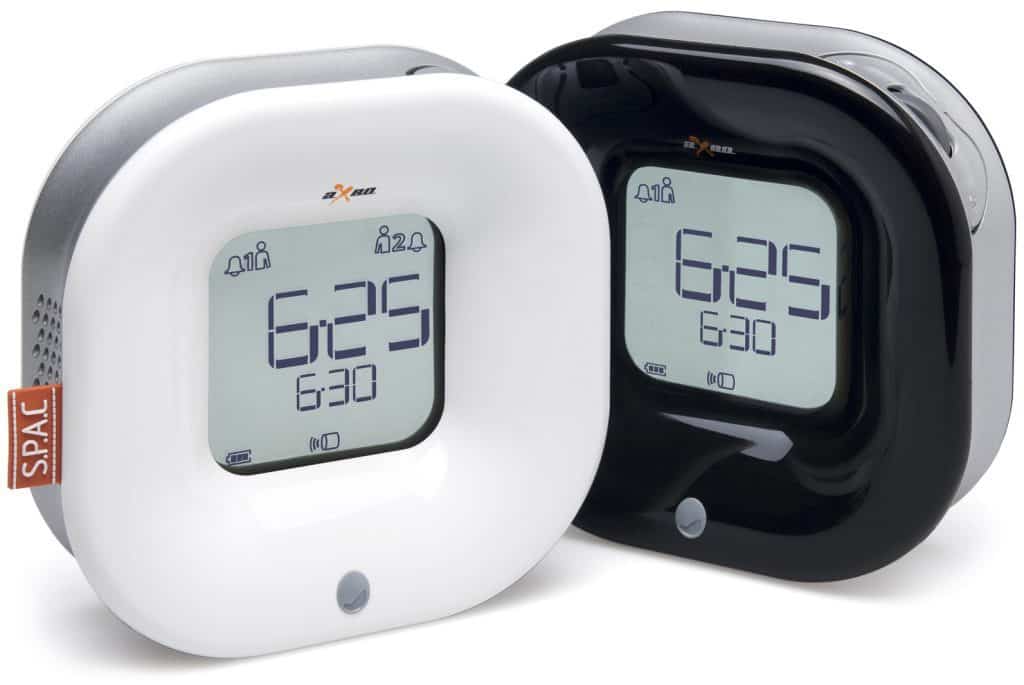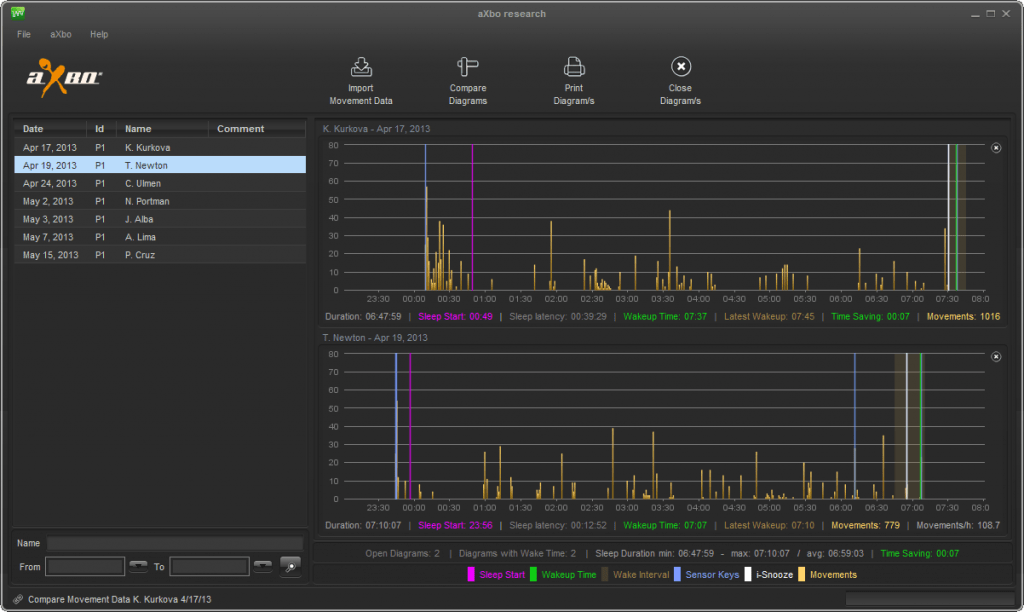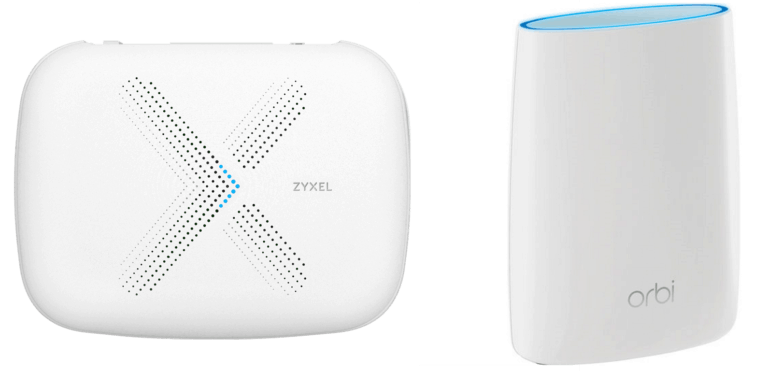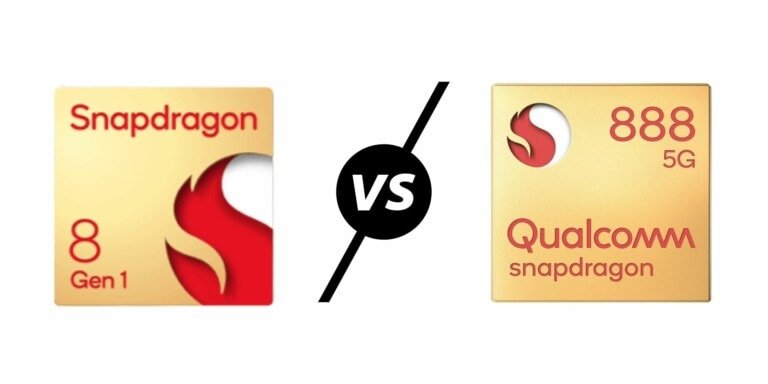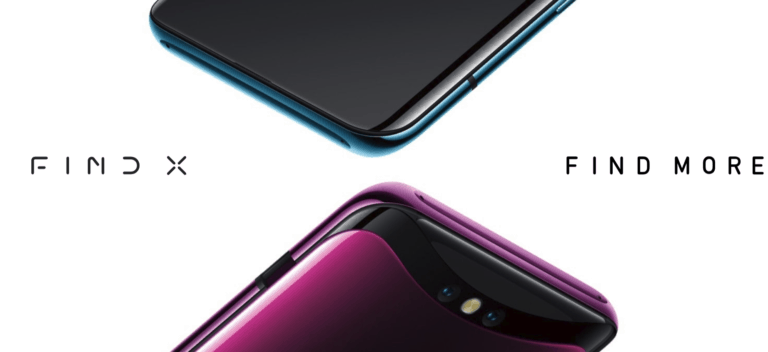Any links to online stores should be assumed to be affiliates. The company or PR agency provides all or most review samples. They have no control over my content, and I provide my honest opinion.
I suffered from insomnia for many years, and one of the reasons for me adopting a new healthy lifestyle a few years ago was to try and fix this. I don’t sleep too bad now, but I am always interested in things that might aid my sleep.
Today we have the aXbo Sleep Phase Alarm Clock. Axbo is Austrian company I have not heard of before, but they have been selling the Sleep Phase alarm clock for several years now, well before the boom of fitness trackers.
In recent years sleep phase tracking has become more mainstream with apps like Sleep as Android and the various Apple equivalents. If you are not aware of this concept it works by tracking the various phases of your sleep based on movement.
Typically, a sleep phase lasts 90 minutes and consists of 5 phases, light sleep, total sleep, deep sleep, total sleep(again) and REM. With a typical adult needing 4-5 of them a night. Hence 6-8 hours’ minimum sleep.
One of the reasons people feel groggy upon awakening, and throughout the rest of the day, is being awoken during an incorrect phase like deep sleep or REM.
Your body should naturally manage this cycle, but with stress, irregular sleep patterns and stimulating factors, the body often struggles and this is frequently where sleep problems start to arise.
The aXbo SleepPhase Alarm Clock aims to fix this by naturally waking you up at the correct time when it detects you are in a light level of sleep.
This advanced alarm clock analyses your sleep patterns via a wireless wristband worn while you sleep. Developed by sleep scientists, the axbo SleepPhase sleep monitor will then wake you up gently, with the sound of birdsong or five other gentle sound.
The aXbo unit itself is an attractive alarm clock that will fit nicely on any bedside table. At the rear of the device is a USB port for charging but also as a computer interface.
The aXbo tracks your sleep movement with a terrycloth wristband with sensors in it. It is quite comfortable to wear and certainly didn’t annoy me during my testing of it.
The aXbo is quite easy to use and set up, you have a scroll wheel to navigate the menu, with other buttons to confirm settings or go back.
I naturally wake up at around 4am and don’t find it too hard to get up either. On the rare occasion, I do use an alarm, and it goes off before I wake, I do suffer from grogginess quite badly, so I was hoping the aXbo would mitigate this issue.
During my use of the aXbo, it stayed consistent with my patterns, sometimes I woke before it tried to wake me, other times it did the job, and I didn’t feel too tired from it either.
The aXbo offers some other features too which include:
- iSnooze which wakes you again in your next optimal sleep phase, within the next half-hour.
- Variable wake-up time window : choose between either a 30 or 15-minute window.
- Specially developed wake-up sounds taken from Nature (e.g. birdsong) enable you to wake up gently.
- Pleasant sounds which help you to relax (e.g. the sound of the sea) fade out automatically as soon as you have fallen asleep
- Power Nap – monitors your nap for 30 mins to wake you at the optimal time.
- aXbo Research : The aXbo research software allows you to evaluate and understand your sleep behaviour on your computer
The aXbo Research is one of the features that is more interesting to me, and it is interesting to look at. However, it is very similar to the sleep tracking features of Fitbit etc. It’s fun to look at, but I don’t feel like it provides that much useful incite. I generally know when I have had a bad sleep or not.
Overall, this is a great alarm clock and is a worthwhile alternative to other natural waking clocks such as the Lumie Bodyclock which wakes you from your sleep using artificial sunlight.
The major drawback is the cost. At around £145 for the single user clock or £160 for the couples version, it is expensive.
While there does not appear to be a true direct competitor to the aXbo, there are a lot of products similar, with varying prices. You can get free apps on smartphones that offer the same functionality, or there are products that monitor noise or movement from the pillow.
All the competing products do offer drawbacks, though. Noise won’t be as good as monitoring your sleep as movement, and I use about 4 pillows through the night so a pillow clip is no use to me.
If you suffer badly with your sleep, spending £145 to help fix it will be well worth it, but for a lot of people, cheaper or free alternatives will probably do just as well.
You can buy the aXbo today for £159 for the couples version or £145 for singles via axbo.com and it is also available on Amazon.
I am James, a UK-based tech enthusiast and the Editor and Owner of Mighty Gadget, which I’ve proudly run since 2007. Passionate about all things technology, my expertise spans from computers and networking to mobile, wearables, and smart home devices.
As a fitness fanatic who loves running and cycling, I also have a keen interest in fitness-related technology, and I take every opportunity to cover this niche on my blog. My diverse interests allow me to bring a unique perspective to tech blogging, merging lifestyle, fitness, and the latest tech trends.
In my academic pursuits, I earned a BSc in Information Systems Design from UCLAN, before advancing my learning with a Master’s Degree in Computing. This advanced study also included Cisco CCNA accreditation, further demonstrating my commitment to understanding and staying ahead of the technology curve.
I’m proud to share that Vuelio has consistently ranked Mighty Gadget as one of the top technology blogs in the UK. With my dedication to technology and drive to share my insights, I aim to continue providing my readers with engaging and informative content.


